Tag: Life Lessons
Without an Open Mind…


—
Tomorrow I’ll be live on the Goucha TV show in Portugal. Manuel Luís Goucha is one of Portugal’s most notorious presenters. He is a unique conversationalist who has his guests share life stories.
I’ll let you know how it goes. As for now, I’m a little nervous. But the preparation has also had me reflecting. Here’s a thought: Without an open mind, our heart cannot grow.
So I’m also feeling grateful to have been surrounded along the way by many people who have help me keep an open mind so that my heart could continue growing to face and embrace what life sent my way. To them, thank you!
Wish me luck.
What We Pay With Money…


Photo by Josh Olalde on Unsplash
I enter Terminal 1 of Barcelona Airport and walk toward the departure screens. My flight is not on it. Shit. I check my ticket. Wrong terminal. I pull out my phone and call Juan, my buddy taxi driver. “Juan, I’m in the wrong terminal”. “Hold on. I’m coming”.
We speed into Terminal 2. I rush to security control. Laptop. Liquids. Backpack. Carry-on suitcase. I’m in. I still have time. Shortly later we’re in the air. I made it. I relax.
It’s cold and I reach up to get my sweater from my carry-on. My carry-on! Where’s is my carry-on? Oh shit. Where did I leave it? At security control. Fuck!!
I thought of what was in the suitcase: 2 pairs of new pants, 2 pairs of my comfy shoes, my favourite white shirt, my leather jacket, my Bose speaker… Just as I was about to freakout, Jonatan’s words popped into my mind.
Jonathan is a young barista I met a few years back at a hotel where I delivered a workshop. On the second day of the workshop, I notice Jonatan was not wearing his glasses. Curious, I ask if he had forgotten them at home. He explains he lost them. “That sucks”, I say. As he finishes pouring my tap beer and hands it to me he says:
—
What we pay with money is inexpensive.
—
In the airplane, I ended up thinking:
—
What if instead I had lost my desire to live or the love of my friends?
—
Then came immense gratitude. I ordered a drink and smiled.
Thank you, Jonatan, for the wisdom!
Wisdom for Teams #30
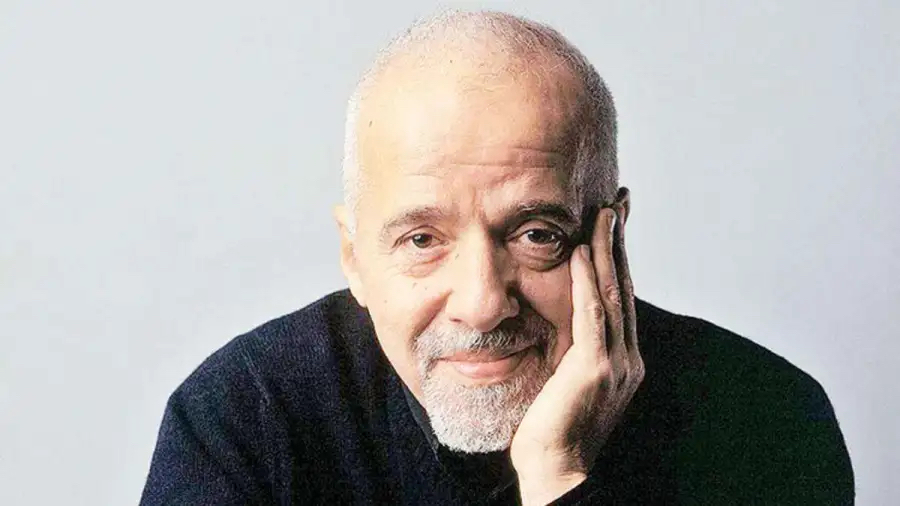
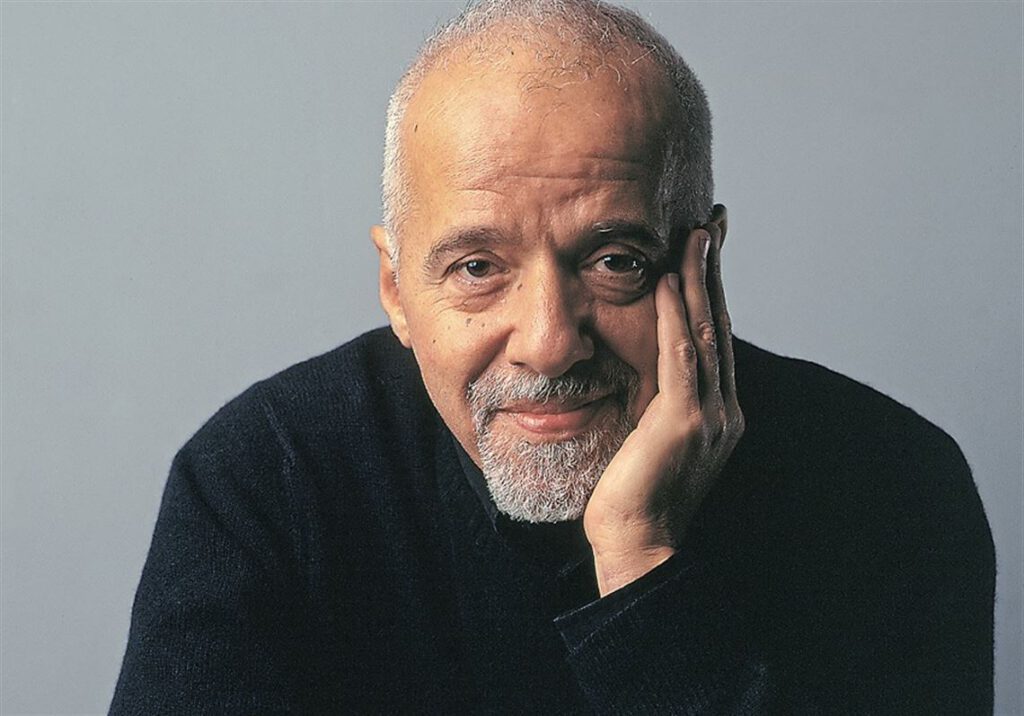
—
Everyone seems to have a clear idea of how other people should lead their lives, but none about his or her own.
—
PAULO COELHO (1947), Brazilian lyricist and novelist, author — among many others — of The Alchemist.
4 Universal Truths Like Gravity

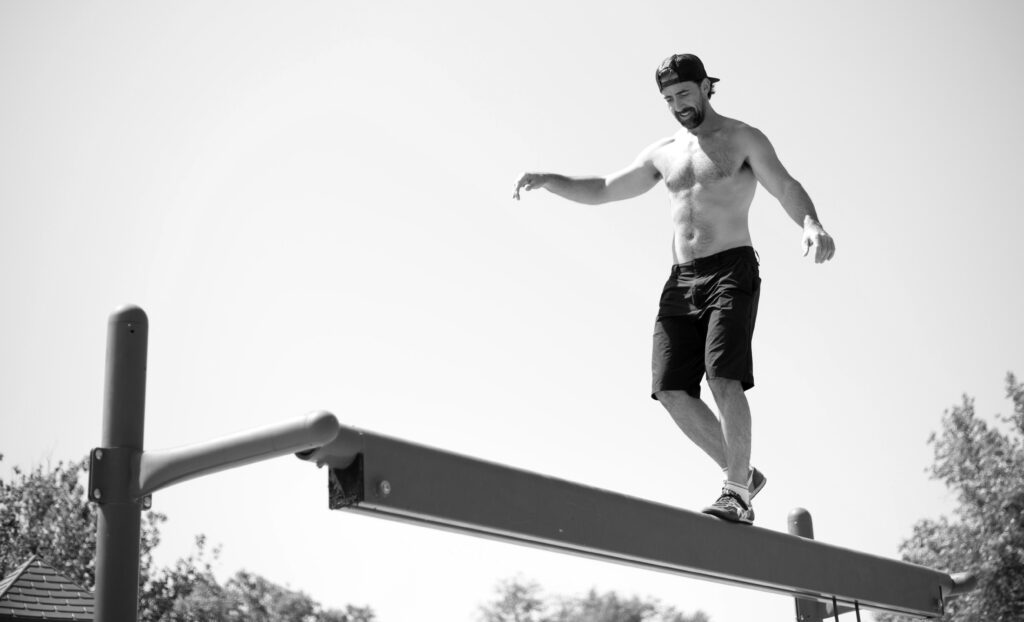
Photo by GMB Fitness on Unsplash
—
7th grade + A gymnastics balance beam + Me fooling around = An awful black eye + An important lesson
—
We can defy gravity but we better not ignore it.
—
Here are four universal truths, like gravity, that I’ve picked up along the years. Defy them at will. Ignore them at your own peril.
—
1 – We are evolutionary work in progress.
Our personal growth is limited by the constraints of the evolution of our species. We can only be what nature allows us to become, and we are not that different from the Homo sapiens of 100,000 years ago.
Make peace with the fact that there are a bunch of unconscious and involuntary survival forces at work in you that you cannot eliminate.
—
2 – We are meaning making machines.
We need meaning to make sense of life, and at the same time, meaning doesn’t exist in itself, we make it up. Meaning is not finding a purpose for experience, meaning is deciding to make experience purposeful.
Don’t look for what your life means. Create meaning for where you are right now.
—
3 – We are the quality of our mind.
Ever notice how some people who live in shitty conditions can live rather happy lives? Whatever our reality, we can only experience the world through our mind. This means the quality of our experience depends on the quality of our mind. Quality of life is quality of mind.
Improve the quality of your mind through education and introspection.
—
4 – We are slaves to our beliefs.
Beliefs are like sunglasses — like it or not, they color reality. Good or bad, right or wrong, whatever we believe determines how we perceive and interpret everything that happens. We can change our beliefs, but once accepted, we can’t erase the color they impose on us.
Regularly review how well your beliefs are working for you.
—
What universal truths would you add to the list?
Wisdom for Teams #26
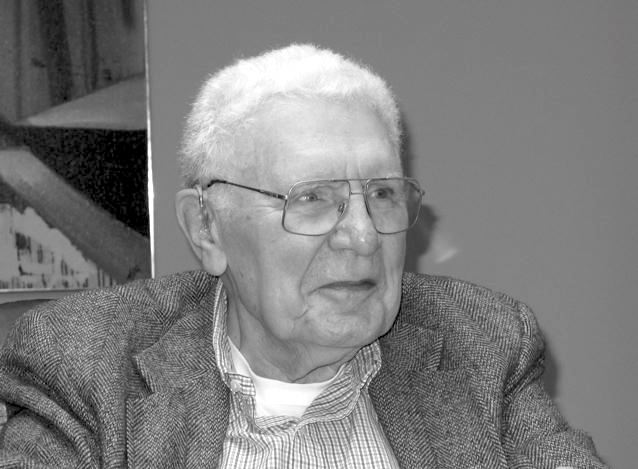

—
People learn more from their own mistakes than from the successes of others.
—
RUSSELL LINCOLN ACKOFF (1919 – 2009), American organizational theorist, consultant, pioneer in the field of operations research, systems thinking and management science.
My Mom
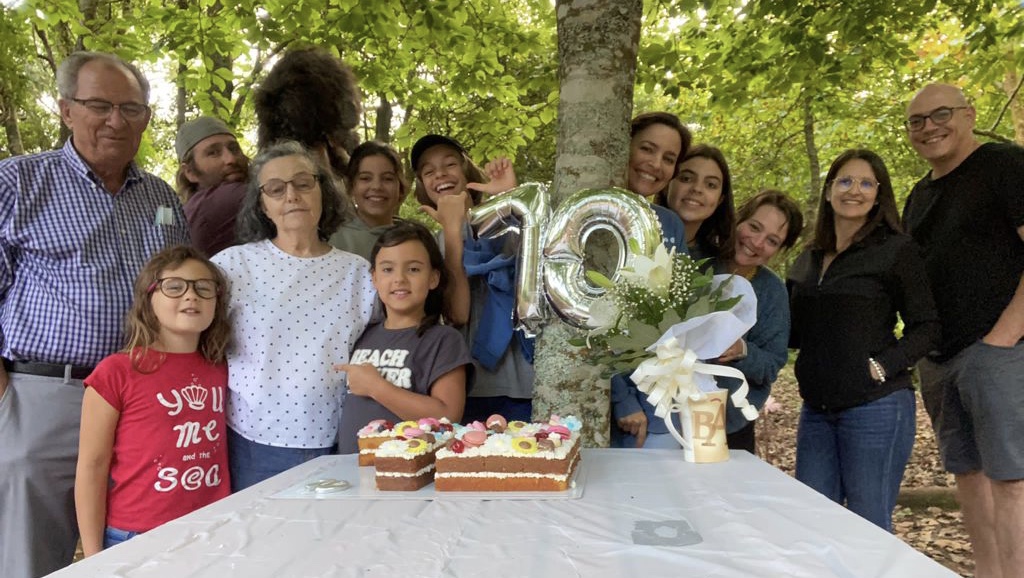

On September 18, my mom, Jorgina, turned seventy. It was a wonderful celebration, even though the other half of the family that doesn’t live in the Azores participated only for a few moments via a video call.
Seventy years made me think about the inevitable, the inescapable, the undeniable. Death. Make no mistake. My mom is a badass. She’s easily got another thirty years in her, and she will definitely not go gentle into that good night. But still, it will happen, and it doesn’t feel nice.
This past Saturday, after my coaching sessions at IESE Business School, my colleagues and friends, Conor Neill and Tony Anagor, and I stood in the parking lot and chatted under the beautiful Barcelona sun.
We talked about how we sometimes struggle to slow down, to stop, to do nothing. Tony said he recently listened to a podcast that suggested we read a poem to help us become more mindful and slowdown. This is the poem:
—
Be here. Not there.
—
That’s the poem. Be here. Not there.
Back to my mom. So grateful for this poem! If I’m there, at the future moment of her death, I’m bound to worry and suffer. If I’m here, at the present moment of her seventy years, I’m bound to celebrate and feel happy.
My mom will die. I will die. I don’t know what it will be like. But it seems pointless to stop living the present to worry about a future I can’t change. So for now, I choose to stay here, happily celebrating her seventy years.
Love you, mom.
What Is Your Problem?
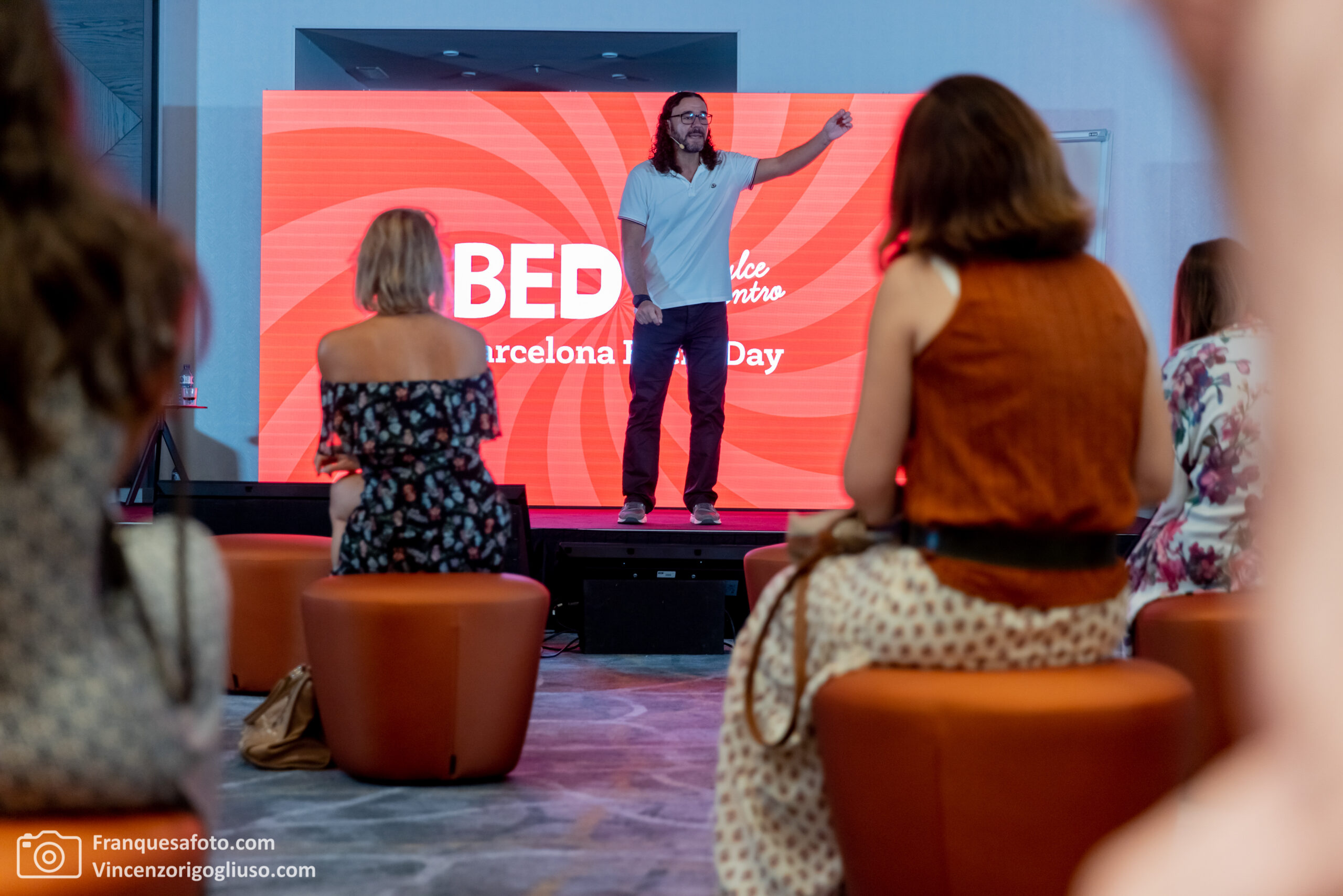
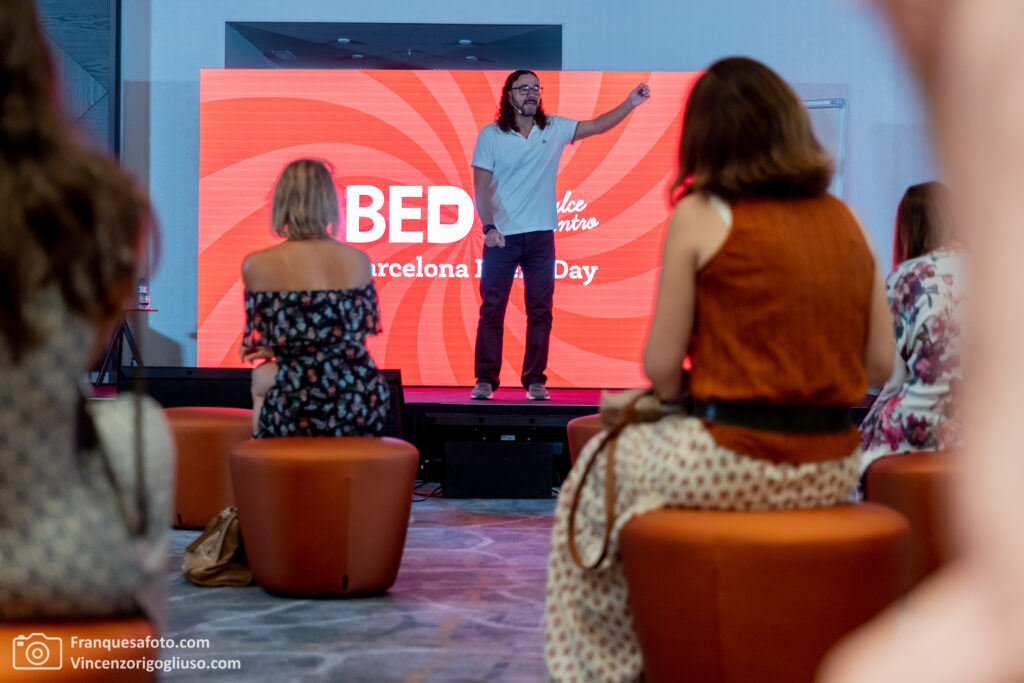
—
For the audio version of this post click below.
—
On July 6th I gave my first fact-to-face speech since the lockdown. I spoke at the BED Event in Barcelona for professionals of the events industry, both event organizers and providers. My question for them was: What is your problem?
One way of making sense of life, is to view the situations we face as a series of problems. For example, getting a degree, finding a job, and raising kids can be seen as “problems” we face in life.
Problems fall into one of two categories:
- Problems-we-have. Examples could be: I want a promotion; I want more clients; I need someone in my life. What do these problems all have in common? In all of them we occupy the center stage and the spotlight is shining on us.
- Problems-we-solve. Examples could be: I want to participate more in the company’s success; I want to serve more clients; I’d love to share my life with someone special. These problems have in common the fact that other people occupy the center stage and the spotlight is shining on them.
—
Generosity is the highest form of fulfilment.
—
Notice how both types of problems deal with the same situations and the same people. The difference is who the problem is about: us or others. Now look back on the lives of your role models. Was it a series of problems-they-had or problems-they-solved?
From what I’ve seen in my 45 years, it is much easier to deal with the challenges we face, both professionally and in our personal life, when we transform problems-we-have into problems-we-solve by moving our butts away from the center stage and shinning the spotlight on others.
—
So what problems are you solving at this point in your life?
Given the recent changes in the world, what new problems could you solve?
—
A Life Lesson From Computers

“Don’t put the bags on the bed. They have germs,” she said. The couple had just returned home from the mall. “I don’t get it,” he said, “the dogs spend the day running around in the garden and then they sleep on the bed. But the bags…?!”
—

—
Most computers run a single operating system. Most computers have bugs. Human brains run on three operating systems: reason, emotion, and instinct. Is it too big a surprise that we have bugs?
To nurture relationships in all areas of life we will want to embrace the occasional bug in people’s behaviour.
Don’t look for reason in what is emotional.
I Broke a Promise
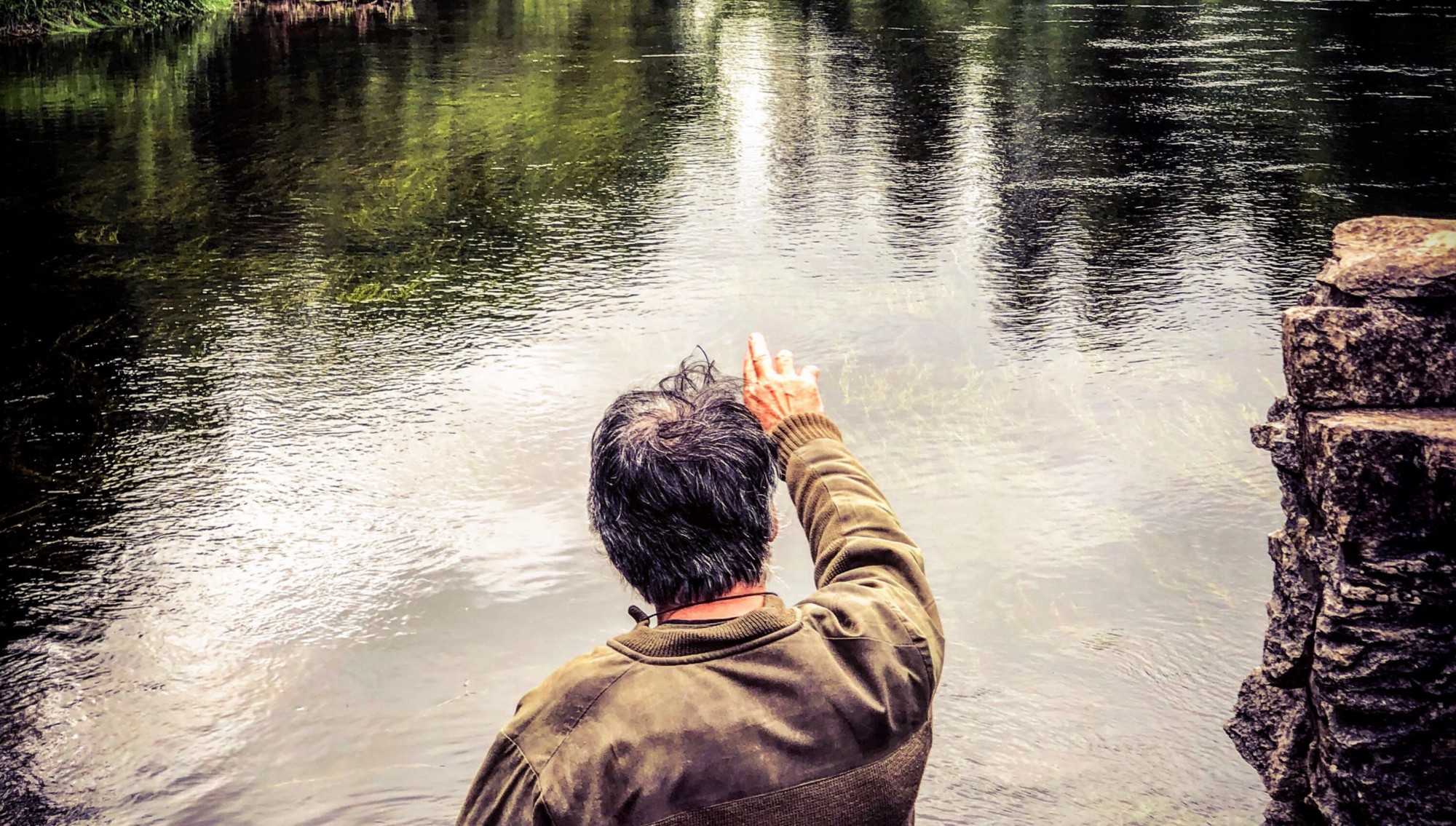

Photo Credit: Jonny Miller
I broke a promise when I decided I’d no longer serve as a priest.
I broke a promise when I decided I’d end the relationship.
I broke a promise when I decided I’d stop seeing that friend.
Breaking a promise didn’t feel good. But it happened, again and again.
This week I came across a poem by David Whyte about how to break a promise.
Apparently we humans break promises, again and again. Apparently we can learn to do it better.
Shall we accept that breaking promises is part of life, like making them is?
—
To Break a Promise
Make a place of prayer, no fuss now,
just lean into the white brilliance
and say what you needed to say
all along, nothing too much, words
as simple and as yours and as heard
as the bird song above your head
or the river running gently beside you.Let your words join one to another
the way stone nestles on stone,
the way water just leaves
and goes to the sea,
the way your promise
breathes and belongs
with every other promise
the world has ever made.Now, let them go on,
leave your words
to carry their own life
without you, let the promise
go with the river.Stand up now. Have faith. Walk away.
In “The Sea in You: Twenty Poems of Requited and Unrequited Love” by David Whyte
P.S. David, I hope you don’t mind me sharing your poem here. Thank you.
A Story About Assumptions, Surprises, and More


Photo courtesy of One Day Web Group
—
In the year 2004-2005, I worked as a hospital chaplain, the priest that visits patients at the hospital. It was a year of great learning. This story is conceivably my greatest lesson learnt.
—
—
This was recorded as part of a storytelling evening organised by Lukas Liebich. You can learn more about it here: https://www.facebook.com/events/59426…

